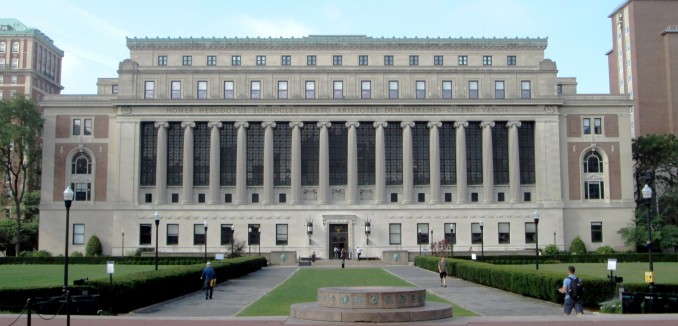235 members of Columbia’s faculty, or perhaps more by now, have signed a letter to the Columbia Board of Trustees urging them to reject calls to divest from companies doing business with Israel. The signers of this letter have defended a core value of the American university. Regardless of where one stands on Middle East affairs, the two-state solution, or the West Bank settlements, one thing is clear: the BDS movement (“Boycott, Divest, Sanctions”) has crossed too many lines of academic freedom and declared war on the free exchange of ideas and scholarship.
The University of Chicago’s Kalven Committee wisely counseled: “[The university] is a community which cannot take collective action on the issues of the day without endangering the conditions for its existence and effectiveness. There is no mechanism by which it can reach a collective position without inhibiting that full freedom of dissent on which it thrives. [T]here emerges, as we see it, a heavy presumption against the university taking collective action or expressing opinions on the political and social issues of the day or modifying its corporate activities to foster social or political values…” The proponents of BDS trample on this crucial protection of institutional integrity.
Recently the American Historical Association firmly rejected an initiative to impose an academic boycott on Israel. It is hard to imagine a more egregious affront to academic values than the attempt to marginalize scholars because of their association with Israeli academic institutions. It is refreshing to see AHA stand up to the pressure to which the National Women’s Studies Association, the American Studies Association, and the American Anthropological Association succumbed.
The monomaniacal focus on Israel suggests that this pressure stems not from a desire to secure social justice, but from anti-Semitism, as former Harvard president Larry Summers has observed. Nearly every day, new reports of repression of academics in other nations, sometimes violent and brutal, arise. Yet, proponents of BDS respond with deafening silence to the persecution of scholars and teachers in communist China, Turkey, Venezuela, or the Palestinian Authority itself. It is time for the students and faculty of American higher education to ask just what principles are furthered when they embrace the call for institutional sanctions of Israel.
American higher education should be grateful to the 235-plus members of Columbia’s faculty and to the American Historical Association for refusing to allow further trespass on academic freedom and the free exchange of ideas.
Michael B. Poliakoff is the Vice-President of Policy for the American Council of Trustees and Alumni. Twitter: @PoliakoffACTA K
[Photo: Beyond My Ken / Wikimedia ]




